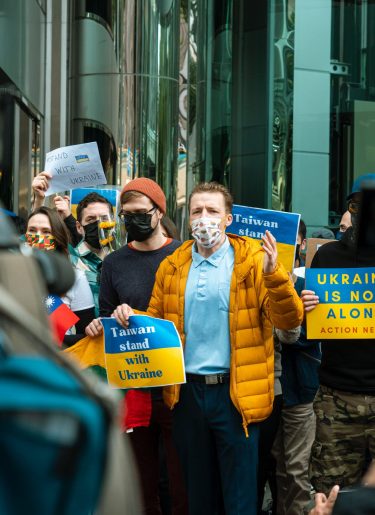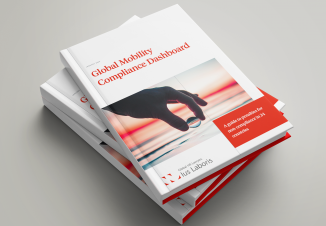
Ukrainian nationals who hold valid biometric passports benefit from visa-free travel and are allowed to enter the territory of the Slovak Republic without an entry visa. The Ministry of Interior has stated that upon individual assessment, entry will be allowed also to individuals who do not have a valid travel document (biometric passport or visa).
Ukrainian citizens can enter and stay in Slovakia without a visa for up to 90 days in any 180-day period. At the same time, and in the context of the crisis, a Ukrainian citizen who has legally entered Slovakia and has not been granted a residence, is entitled to stay in Slovakia until one month after the crisis situation is declared over (i.e. longer than 90 days). A crisis situation was declared in Slovakia in March 2020 and due to the ongoing COVID-19 pandemic it is still in force.
If Ukrainian citizens want to stay in Slovakia for a longer period, they need to apply for a residence. Applications for temporary residence must be made for a specific purpose, such as employment, business, study, intra-company transfer, family reunification, etc. The purpose of an intended stay must be legally documented.
However, Ukrainian citizens can also apply for temporary protection, asylum, or subsidiary protection.
Temporary protection
Temporary protection (known as ‘temporary refuge’ in the Slovakian act implementing the Temporary Protection Directive, and described as such on sites and in documents for Ukrainians in Slovakia) is currently the simplest way for people fleeing the war in Ukraine and does not require lengthy official procedures. It will give Ukrainian citizens quick and unrestricted access to the labour market, health care, and education of their children. In principle, this special form of protection can be obtained immediately. A person with temporary refuge will be issued with a tolerated stay document in Slovakia marked ‘Odídenec’ or ‘Dočasné útočisko’. Temporary protection or refuge will be granted to 4 March 2023. This period may be automatically extended by six months to one year, unless the Council of the European Union decides otherwise.
Asylum
Asylum grants permanent residence in Slovakia. Ukrainian citizens can apply for asylum based on fulfilling the conditions, and the Slovakian Ministry of the Interior will decide within 90 days of submission of the application. However, this option is more administratively demanding.
Subsidiary protection
In this case, the Ukrainian citizen will be granted temporary residence for one year, with the possibility of an extension for another year. However, subsidiary protection may be granted only if there are serious grounds for believing that the applicant would face a real threat to his or her life if they return to their country of origin.
During short-term residence, that is, under the visa-free regime in Slovakia, Ukrainian citizens do not have the right to work.
For Ukrainian citizens who stay in Slovakia longer (long-term stay), the following applies:
However, the employer must inform the appropriate Labour Office about when it starts to employ any individual who has been granted temporary refuge, subsidiary protection, or asylum within seven working days using the Information Card Form. The employer is also obliged to provide data on employment to the appropriate Labour Office even after the termination of employment, also within seven working days. The employer must supply a copy of the employment contract, for workers with temporary refuge, and a copy of the tolerated stay document marked ‘Odídenec‘ together with the Information Card.
As of 1 April 2022, foreign nationals may be employed in Slovakia on a basis of national visas.
For employment of Ukrainian citizens, the same conditions apply in regards to contributions as to any other employees. The employer is obliged to register these employees for health and social insurance and pay all their contributions in full.
Teaching, medical, or other professions are classified as regulated professions (a list of regulated professions can be found here and specific conditions apply.
The official recognition of formal and professional qualifications is a process performed by the Centre for recognition of diplomas (CRD) of the Ministry of Education, Science, Research and Sports of the Slovak Republic. This process is quite rigid and time-consuming but a relaxation of the rules has been announced.
If the employer employs a Ukrainian citizen on a long-term basis who is not a refugee, the conditions of employment do not change. These individuals have already been granted a residence permit or have other legitimate reasons to stay in Slovakia.
If a Ukrainian citizen employed in Slovakia performs his military service, the employer cannot consider this as the performance of civic duty or conscription duty under Slovak law and apply the rules that apply for this specific scenario provided by the Slovak Labour Code.
However, in this case the employer may, during the period when the employee is away, invoke rule on obstacles to work for other general reasons and grant the employee time off with or without compensation.
If the employee is granted unpaid time off, the employer must notify the Social Insurance Agency of the interruption of the employee’s social insurance and subsequently, the termination of that interruption after resumption of work. In the case of health insurance, based on the newly adopted act which will be effective (in the next few days), such an employee will be excluded from the health insurance system during this period. Therefore, the employee will no longer be considered a self-payer, that has been the case up to now. However, the employer is also obliged to notify the relevant health insurance company.
For more information about foreign workers



